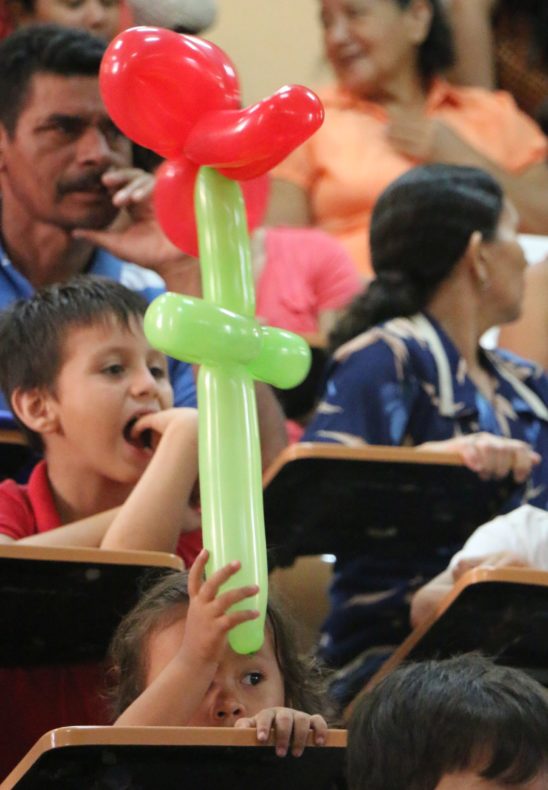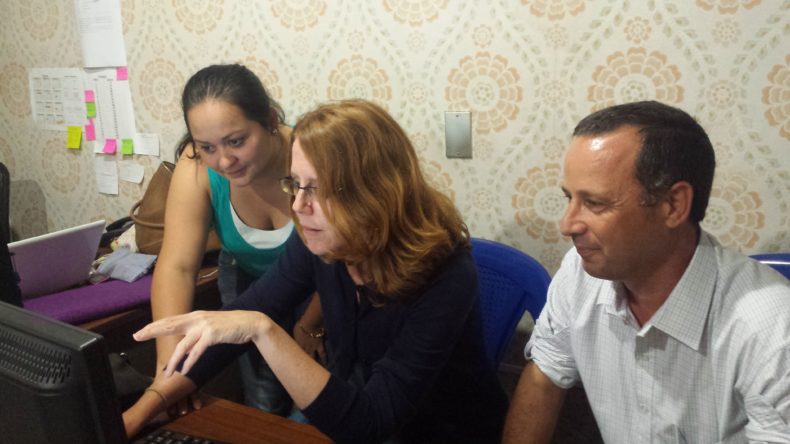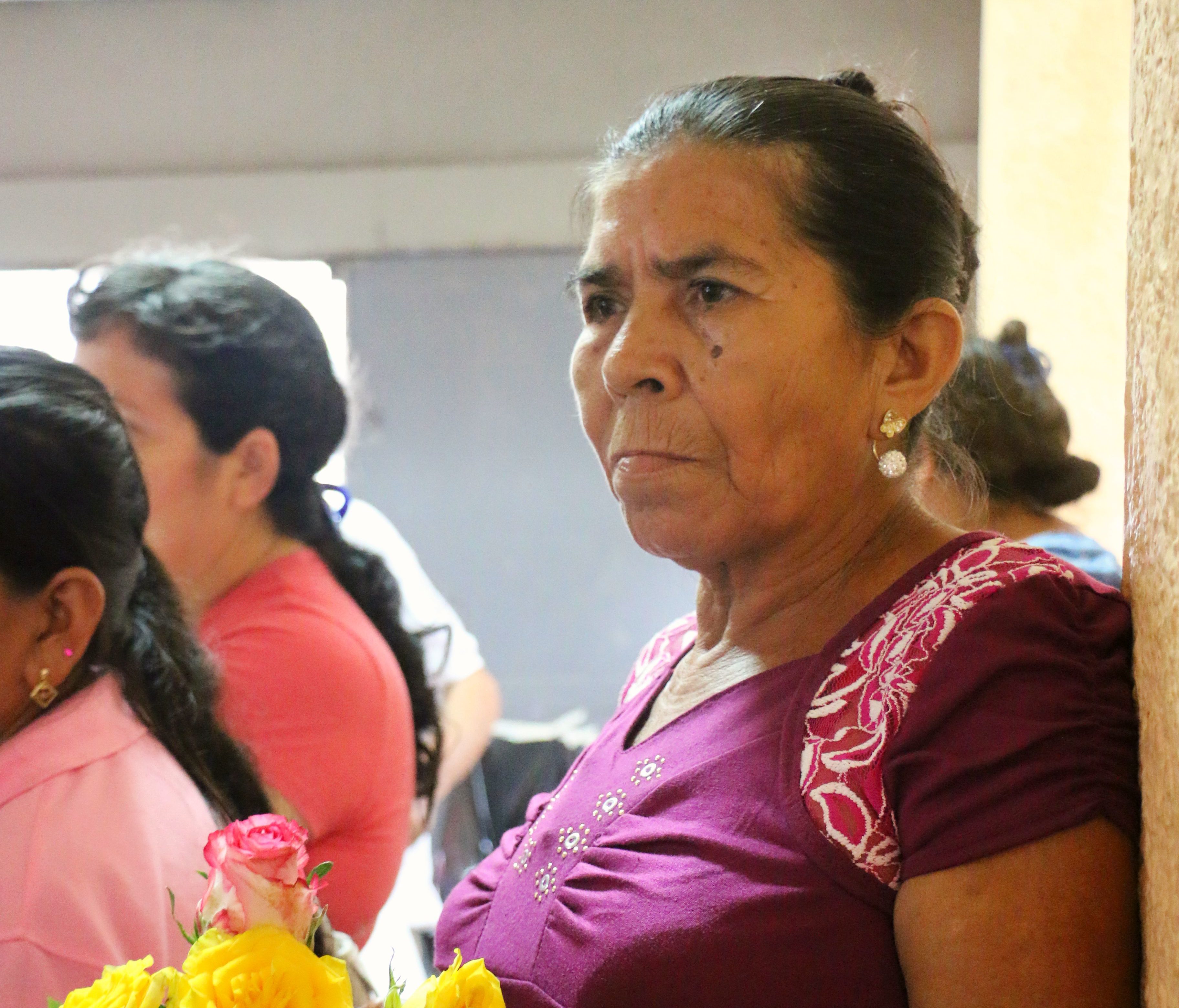On November 14, 2017, about 25 women gathered in a large white community center in Morazon, a remote district in eastern El Salvador along the country’s border with Honduras. The meeting was in second floor room with a polished wood ceiling and windows overlooking tiled roofs and trees, some full of flowers. The women sat in plastic and metal chairs ringing three of the room’s four walls. Most were middle-aged, wearing skirts and sandals. Their faces showed the strength and the wear that’s the norm for their generation in rural El Salvador.
It was a beautiful day. Some of the older women had brought daughters and granddaughters; some of the second generation were there on their own. But all of them were missing something. All of them had had a child taken by their government during El Salvador’s civil war in the eighties. Many of these disappearances remained unsolved more than two decades later.
In adult disappearances, urban intellectuals or opposition members were taken by authorities and never heard from again. The child disappearances were different. The military took children from poor families in rural rebel-controlled regions with less regard to individual identities, in a conflict where entire communities in rebel controlled regions were considered the enemy. And most of the children were kept alive. Some grew up in orphanages. Some were kept by the forces that took them—“given to general’s wives to raise.” And some adopted by couples in the US and Europe who were told they were saving war orphans.
 The meeting was organized by La Asociación Pro-Búsqueda de Niñas y Niños Desaparecidos—the Pro-Search Association for Disappeared Children. Founded in 1994, two years after the government and rebel forces signed peace accords, Pro-Búsqueda has investigated almost 1000 child abductions and solved 435 cases. Fifty-two of those found were killed, but the rest were alive. Many were living in El Salvador, but more than 60 have been found in the US and over 75 in other countries.
The meeting was organized by La Asociación Pro-Búsqueda de Niñas y Niños Desaparecidos—the Pro-Search Association for Disappeared Children. Founded in 1994, two years after the government and rebel forces signed peace accords, Pro-Búsqueda has investigated almost 1000 child abductions and solved 435 cases. Fifty-two of those found were killed, but the rest were alive. Many were living in El Salvador, but more than 60 have been found in the US and over 75 in other countries.
Pro-Búsqueda staff, who’d left the capital before sunrise to make the five-hour drive to the community center, were visiting Morazon to report on their activities to member families.
I’ve described Pro-Búsqueda’s work to many audiences in the US, including at human rights events and statistics conferences, where I’m often asked to discuss how statisticians can aid human rights investigations. (More on that in another post.) Over the past few months, as my own government started taking children from their parents at the US border, I’ve thought about the shock I always saw when describing state-sponsored kidnappings in El Salvador.
Every time I’ve discussed Pro-Búsqueda in the US, I’ve gotten the same question – Why? Why would a government do that? To me, it’s an odd question. I mean, countries wage wars, which include state-sponsored killing. Yet taking children from their parents remains abhorrent at a visceral level that somehow feels worse. That, I tell people, is the point. The reason to take children from their parents is to sow fear.
But abhorrent actions can also inspire resistance. At the meeting on that sunny tropical day, a second generation Pro-Búsqueda employee, a woman with a winning smile who was finishing her college degree while advancing in the organization’s leadership, described a reorganization. The group founded by heartbroken parents in the wake of immediate tragedy has increasingly become a political and social force. Pro-Búsqueda staff run trainings and support groups for disappeared children they have located and pursue legal cases. Recently, the organization’s lawyers helped draft a bill that would provide reparations to victims of the war, including the disappeared children.
As I write this, separations at US borders have been stopped as official policy, and courts are requiring the government to reunite families. Yet we’re learning that even the US, this isn’t necessarily easy.
As citizens and politicians in the US continue to push for family reunification perhaps there’s a lesson to be learned from Pro-Búsqueda. Some wrongs take a long time to right.
 When she’s not writing, Robin Mejia teaches statistics at Carnegie Mellon University.
When she’s not writing, Robin Mejia teaches statistics at Carnegie Mellon University.
Photo Credit: Félix Meléndez
